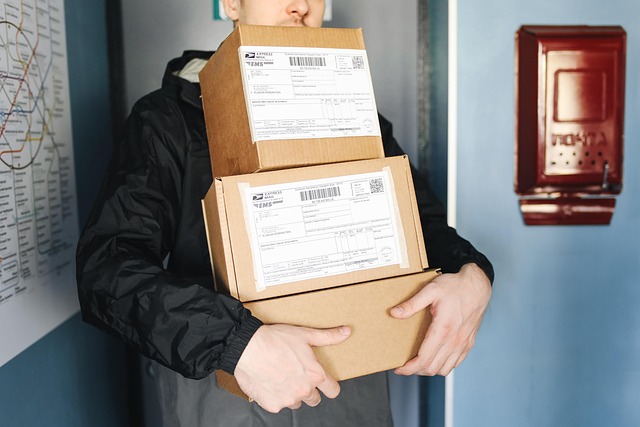Package Delivery Scam Alert: How Fake Missed Delivery Texts Are Tricking Thousands
Scammers are now posing as delivery companies, sending fake texts and emails claiming you’ve missed a package. One click can lead to identity theft, stolen banking info, or malware downloads. Learn how these scams work and the easy steps you can take to protect yourself today.

What are fake missed delivery texts and emails?
Fake missed delivery texts and emails are fraudulent messages designed to mimic legitimate communications from well-known shipping companies. These messages typically claim that a package delivery was attempted but unsuccessful, urging the recipient to take immediate action. The goal is to create a sense of urgency and curiosity, prompting the victim to click on malicious links or provide sensitive information.
How do package delivery scams typically work?
Package delivery scams often follow a similar pattern. The scammer sends a text message or email claiming to be from a reputable shipping company, such as FedEx, UPS, or USPS. The message informs the recipient that a delivery attempt was made but failed due to an incorrect address or other issues. To resolve the problem, the victim is instructed to click on a link or call a provided number, which then leads to requests for personal information or financial details.
What are the risks of falling for a missed delivery text scam?
The consequences of falling for a missed delivery text scam can be severe. By clicking on malicious links or providing personal information, victims may expose themselves to various risks:
-
Identity theft: Scammers can use the collected information to open credit accounts or make fraudulent purchases in the victim’s name.
-
Financial fraud: Banking details or credit card information may be stolen and used for unauthorized transactions.
-
Malware infection: Clicking on links in fake messages can lead to the installation of malware, potentially compromising the security of the victim’s device and data.
-
Phishing attacks: Scammers may use the information gathered to launch more sophisticated phishing attempts in the future.
How can you identify a fake tracking number email or parcel scam message?
In the United States, package delivery scams have become increasingly sophisticated, making it crucial to stay vigilant. Here are some unique facts and tips to help you identify potential scams:
-
Legitimate shipping companies rarely, if ever, send unsolicited text messages about missed deliveries.
-
Major carriers like FedEx and UPS have official apps for tracking packages, reducing the need for text notifications.
-
The U.S. Postal Inspection Service reported a 600% increase in delivery-related scams in 2020 compared to the previous year.
-
Scammers often use URL shorteners to disguise malicious links, making them appear more legitimate.
-
Some sophisticated scams may even include fake tracking numbers that lead to convincing but fraudulent websites.
What steps can you take to protect yourself from package delivery scams?
To safeguard yourself against package delivery scams, consider implementing the following protective measures:
-
Never click on links in unexpected delivery notifications.
-
Verify the sender’s information by contacting the shipping company directly through their official website or app.
-
Use multi-factor authentication for your online accounts to add an extra layer of security.
-
Keep your devices and antivirus software up-to-date to protect against potential malware infections.
-
Be cautious of messages that create a sense of urgency or ask for immediate action.
-
Educate family members, especially older adults who may be more vulnerable to such scams.
How are authorities and shipping companies combating these scams?
Law enforcement agencies and shipping companies are working diligently to combat package delivery scams:
-
The Federal Trade Commission (FTC) has increased efforts to educate consumers about these scams through public awareness campaigns.
-
Major shipping companies have implemented advanced fraud detection systems to identify and block suspicious activities.
-
Some carriers are exploring blockchain technology to enhance the security and transparency of package tracking systems.
-
Cybersecurity firms are developing AI-powered tools to detect and flag potential scam messages more effectively.
-
International cooperation between law enforcement agencies is improving to tackle cross-border scamming operations.
In conclusion, package delivery scams pose a significant threat to consumers in the digital age. By staying informed, vigilant, and following best practices for online security, you can significantly reduce the risk of falling victim to these deceptive tactics. Remember, when in doubt about a delivery notification, always verify directly with the shipping company through their official channels. Your personal and financial security is worth the extra step of caution.




